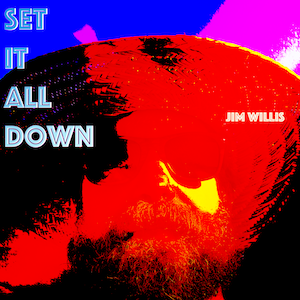Ironically, activist faculty and their conservative critics share the same nihilistic vision of the future of higher education: Both believe that the only valuable forms of research and teaching are those that accomplish something obviously useful. Such views are born of austerity, and they are utterly foreign to me. When I fell in love with English on a college campus many years ago, it was precisely because studying John Milton and James Joyce and Octavia Butler was so intoxicatingly *useless* in market terms. It rejected the assumption that value and utility are synonyms. The humanities captivated me—and foiled the best-laid plans of mice and pre-med—because literature and philosophy seemed to begin from a quietly revolutionary premise: There is thinking that does not exist merely to become work, and knowledge that does not exist merely to become capital. As a blue-collar undergraduate, *that* was a radical proposition. And it’s the only kind of politics we should expect—or require—from the humanities.
we must begin by defending the idea that the humanities have value that is independent of their political or economic use-value. We can make the case that we are not the stewards of some rigid and exclusionary Western cultural heritage or literary canon but of a millennia-old tradition of human inquiry that is still capable of producing knowledge vital to understanding our present. And above all, we can start by being honest—publicly honest—about the forces that form, and deform, the humanities today.
We cannot coax sincerity or real racial justice out of universities that reduce diversity to a commodity that must be purchased through the crudest and quickest tools.
Despite conservative fearmongering about student and faculty revolutionaries, the humanities seem to be about as politically powerless as Vonnegut assessed more than 20 years ago. The increasing politicalization of humanities departments over the past decade has occurred in parallel with the increasing radicalization of the right during that same period, and the former has done positively nothing to curtail the latter.
literary criticism today is all too often understood by its practitioners as a mode of what he calls “surrogational politics.” Novels become the site of a “proxy war”: Critiquing the power relations or the depictions of race or gender in a literary text becomes a surrogate for critiquing those same phenomena in the real world. Reading and interpretation are redefined as a kind of activism, and thus as an endeavor like policy work or criminal defense.
These moves to assess—and punish—humanities programs based on their ultimate financial upside should be understood as part of a broader effort to defund them entirely.
What humanities departments *can* offer their young charges—who grow more progressive by the year—is the promise that their majors can help them understand power and fight for equality.
A cynic could easily argue that the core purpose of the humanities has become to provide the illusion of progressivism to deeply unprogressive institutions, helping them appeal to wealthy liberal students. Colleges usher in social-justice-warrior faculty through the front door while exploiting workers, piling up student debt, and wooing mega-rich donors in the back. Humanities professors often think we’re critics of academic capitalism and rarely pause to wonder if we’re its unwitting stooges.
The message this sends to scholars of color, who are the intended audience for these job ads, is clear: The only expertise we want from you is the expertise that flows from your identity.
a generation of Ph.D. students is eyeing current hiring practices and concluding that the only research that has a prayer of landing them a tenure-track position relates to questions of identity and justice.
that deans—always seeking more brown faces to put on university websites—are more likely to approve new tenure lines in ideologically supercharged, diversity-rich disciplines. It is often *faculty* who are trying to safeguard their fields from the progressive machinations of their bureaucratic overlords. But faced with a choice between watching their departments shrink or agreeing to hire in areas that help realize the personnel-engineering schemes of their bosses, departments tend to choose the latter.
What is new today is *not* that many humanities professors are openly political in their research or teaching. What is new is that departments like English at elite universities have become officially politicized at the behest of university bureaucrats.
If we have any hope of resuscitating fields like English and history, we must rescue the humanities from the utilitarian appraisals that both their champions and their critics subject them to. We need to recognize that the conservatives are right, albeit not in the way they think: The humanities *are* useless in many senses of the term. But that doesn’t mean they’re without value.
If the humanities have become more political over the past decade, it is largely in response to coercion from administrators and market forces that prompt disciplines to prove that they are “useful.” In this sense, the growing identitarian drift of the humanities is rightly understood as a survival strategy: an attempt to stay afloat in a university landscape where departments compete for scarce resources, student attention, and prestige.

